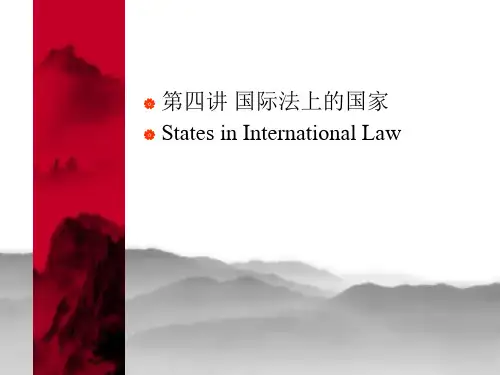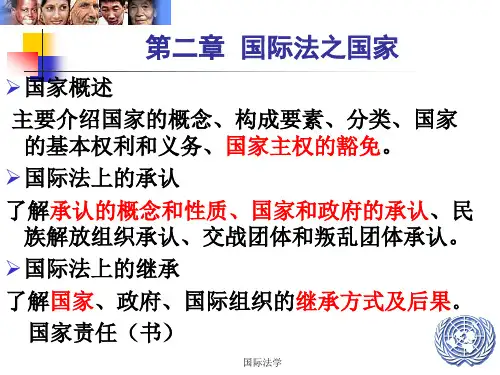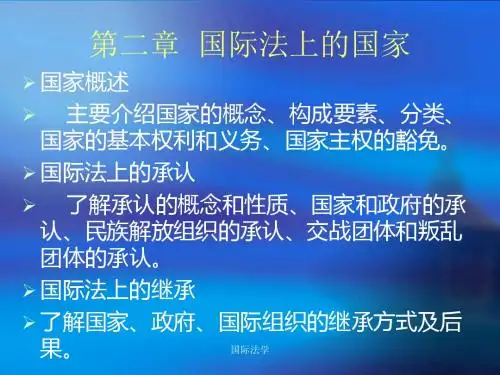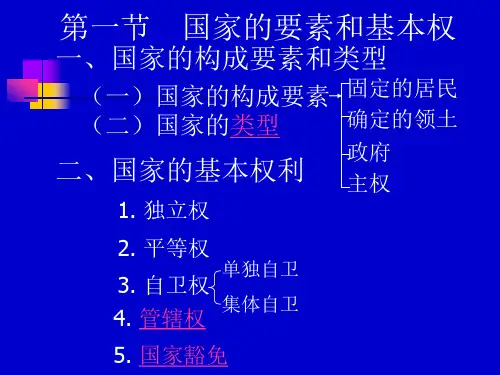第四讲 国际法上的国家 States in International Law
内容 框架
一、国家的要素和类型 二、国家的基本权利和义务 三、国家主权豁免 四、国际法上的承认 五、国际法上的继承
一、国家的要素和类型 (一)、国际法上的国家 (二)、国家的要素 Article 1 of the Montevideo Convention of 1933 on the Rights and Duties of States (signed by the United States and certain Latin American countries) enumerates these characteristics: ‘The State as a person of international law should possess the following qualifications: ---- (a)a permanent population;(b)a defined territory;(c)a Government; and(d)a capacity to enter into relations with other States. ’
发展中国家概念是在1964年召开的联合国贸发会议发表的《77 个发展中国家联合宣言》中首次提出的。“它是指人均国民 生产总值低(1992年世界银行标准为低于7510美元),在发 展初期,或尚处于工业化过程中,教育、卫生和文化事业欠 发达,基础设施不完备的国家。”一般认为,发展中国家指 的是其与发达国家的关系,反映的是它在世界格局中的经济 地位,以及它的经济发展程度和状况,因而,“具有更浓的 经济概念eutralization is that it is a collective act, ie the Great Powers concerned must expressly or impliedly assent to the status of neutrality permanently conferred on the country, and that it is contractual, ie a state cannot be neutralized without its consent, nor can it unilaterally announce its neutralization.










